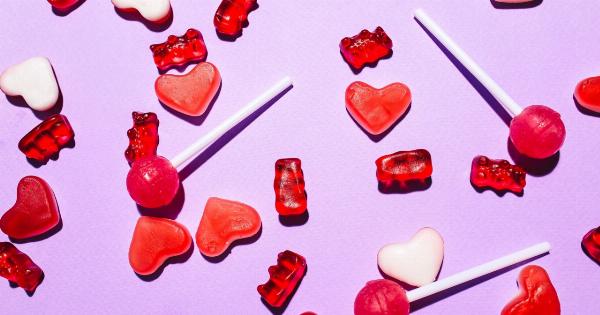Diabetes is a chronic condition that affects millions of people worldwide.
This condition requires individuals to monitor their blood sugar levels and adhere to a strict diet in order to prevent complications such as heart disease, nerve damage, and blindness. One of the most significant aspects of managing diabetes is avoiding certain foods and drinks that can cause blood sugar levels to spike.
In this article, we will discuss the top items that diabetics should avoid in order to manage their condition and maintain good health.
1. Sugar and Sweeteners
For individuals with diabetes, sugar is a big no-no. Diabetics should avoid consuming foods and drinks that are high in added sugars such as cakes, cookies, soda, sweetened teas, and candy.
These foods can cause blood sugar levels to spike and can lead to complications over time. Sugar-sweetened beverages are particularly harmful because they are absorbed quickly by the body and can cause a rapid increase in blood sugar levels.
In addition to sugar, diabetics should also avoid consuming artificial sweeteners. While these sweeteners often have a lower glycemic index than sugar, they can still cause blood sugar levels to rise in some individuals.
It is best to stick to natural sweeteners like Stevia, which do not affect blood sugar levels.
2. Carbohydrates
Carbohydrates are an essential nutrient that provides energy to the body. However, people with diabetes need to watch their carbohydrate consumption carefully as they can cause blood sugar levels to spike.
High-carb foods that diabetics should avoid include white bread, pasta, rice, potatoes, and sugary cereals. Instead, diabetics should choose complex carbohydrates that are low in glycemic index like whole-grain bread, quinoa, and leafy greens. These foods are high in fiber and take longer to digest, which helps to keep blood sugar levels stable.
3. Saturated and Trans-fats
Foods that are high in saturated and trans fats can increase the risk of heart disease and stroke in people with diabetes. Diabetics should avoid consuming foods like butter, cheese, red meat, and fried foods.
Instead, they should opt for foods that are high in heart-healthy fats like olive oil, avocado, nuts, and fatty fish like salmon.
4. Processed Foods
Processed foods are typically high in sodium, sugar, and unhealthy fats. These foods can contribute to weight gain, high blood pressure, and other health issues that can make diabetes symptoms worse.
Diabetics should avoid foods like frozen dinners, potato chips, processed meats, and packaged cookies. Instead, they should choose whole foods that are minimally processed like fresh vegetables, whole grains, and lean proteins.
5. Alcohol
Drinking alcohol can cause blood sugar levels to fluctuate in people with diabetes. It can also interact with diabetes medications and cause other health problems such as liver damage and nerve damage.
If you have diabetes, it is best to avoid alcohol entirely. If you do choose to drink, limit your consumption to one drink per day for women and two drinks per day for men.
6. Fruit Juices
Fruit juice may seem like a healthy choice, but it can be high in sugar and cause blood sugar levels to spike. Most fruit juice lacks fiber, which can help slow down the absorption of sugar into the bloodstream.
Instead of juice, diabetics should choose whole fruits which are lower in sugar and higher in fiber.
7. High-Caffeine Beverages
High-caffeine beverages such as energy drinks and coffee can cause blood sugar levels to fluctuate and interfere with diabetes medications. It is best to avoid these drinks if you have diabetes or limit your consumption to one cup per day.
8. Fried Foods
Fried foods are typically high in unhealthy fats and calories. These foods can contribute to weight gain, which can worsen diabetes symptoms. Diabetics should avoid fried foods like french fries, fried chicken, and fried fish.
Instead, they should opt for grilled, baked, or roasted versions of these foods.
9. Dried Fruits
Dried fruits are a convenient snack, but they can be high in sugar and cause blood sugar levels to spike. Diabetics should avoid consuming dried fruits like raisins, dates, and dried apricots.
Instead, they should opt for fresh fruits that are lower in sugar and higher in fiber.
10. Fast Food
Fast food is typically high in calories, unhealthy fats, and sodium. These foods can contribute to weight gain, high blood pressure, and other health issues that can worsen diabetes symptoms.
Diabetics should avoid consuming fast food and opt for whole foods that are minimally processed.
Conclusion
Managing diabetes can be challenging, but avoiding certain foods and drinks can help to keep blood sugar levels stable and prevent complications.
Diabetics should avoid consuming foods and drinks that are high in added sugars, carbs, unhealthy fats, and sodium. Instead, they should choose whole foods that are high in fiber, heart-healthy fats, and nutrients that can help prevent complications over time.






























